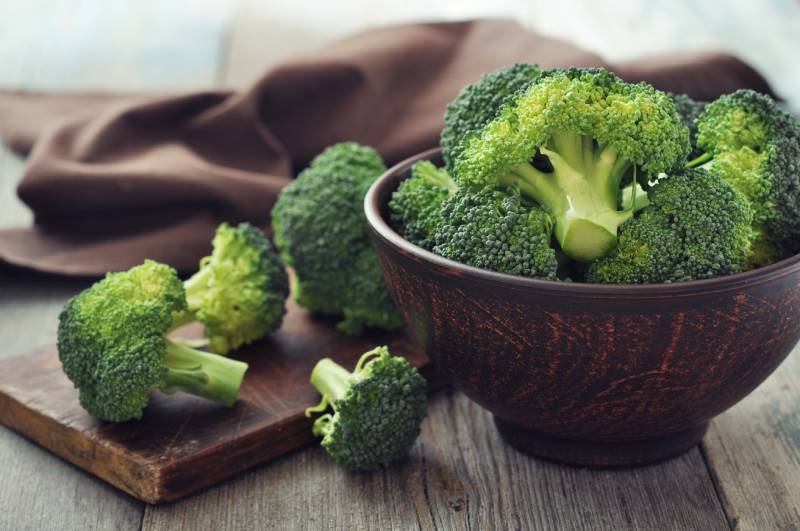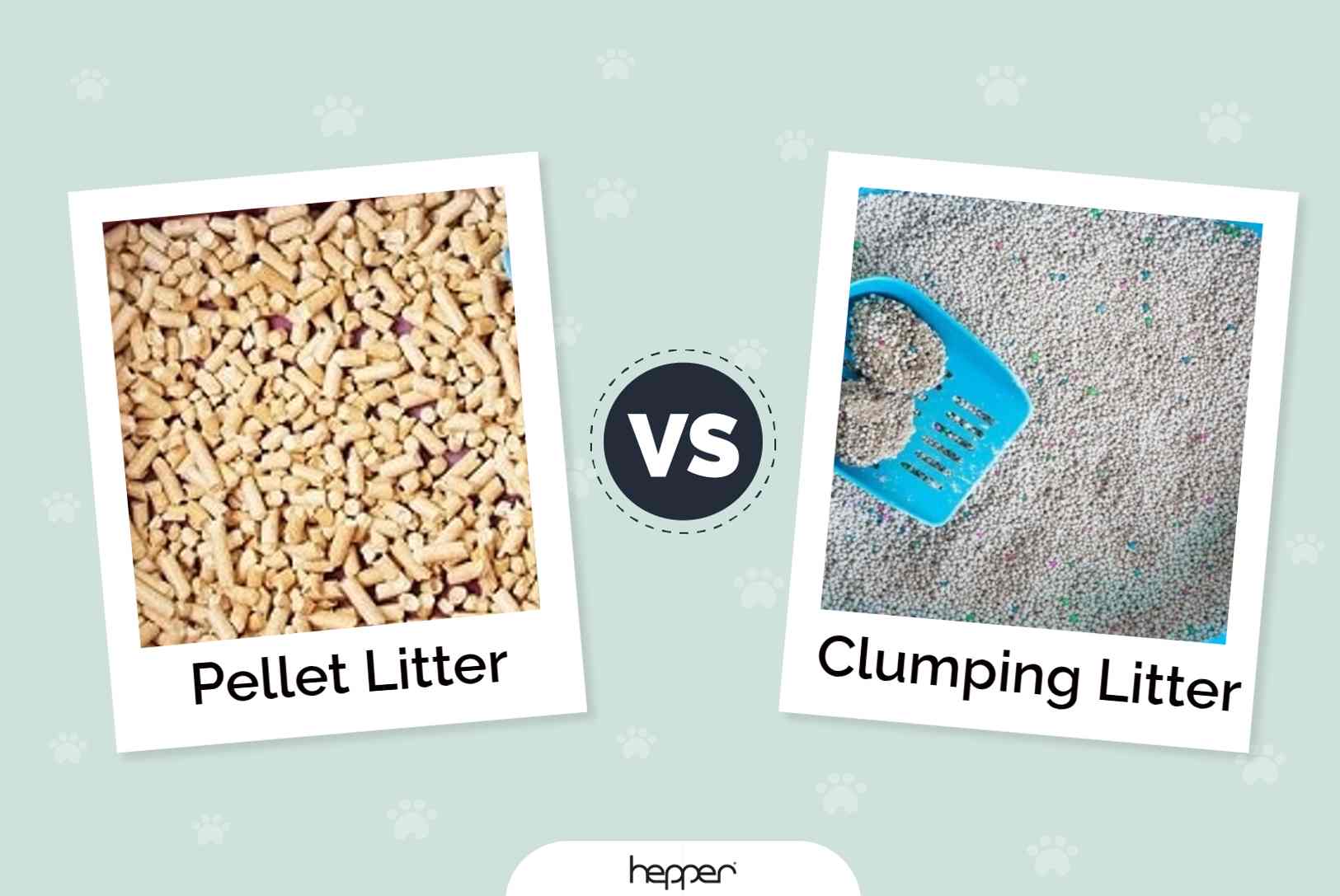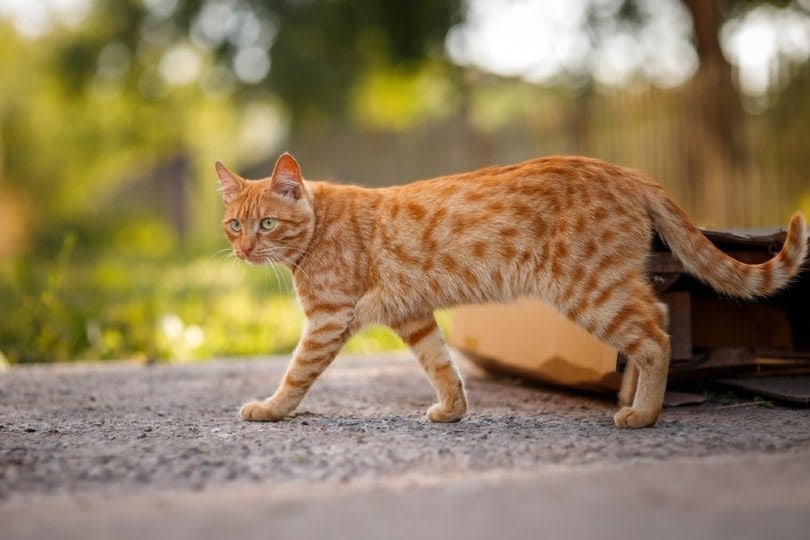Can Cats Eat Broccoli? Vet-Reviewed Benefits & Other Healthy Treats

Updated on

When we were kids, most of us turned our noses up at the plate of bright green broccoli our parents gave us at dinner. Many cats feel the same way about vegetables. However, some cats enjoy an occasional vegetable in their diet. If your cat is one of them, know that you can safely feed your feline broccoli and other vegetables as special treats.
Broccoli for Cats
Broccoli is perfectly safe for cats. It doesn’t contain any toxic compounds that can harm your cat. In addition to not being harmful, occasionally feeding your cat broccoli can actually help cut down on your cat’s urge to chew other green things in your home, such as your houseplants! If your cat is interested in nibbling on broccoli, you can let them do so without worrying.

Broccoli Benefits
Not only is broccoli safe for cats, but it provides them with some nutritional benefits. Although cats are obligate carnivores that don’t need vegetables in their diets, the nutritional boost they get from occasional veggie snacks can benefit their overall health.
- Fiber – Occasionally allowing your cat to have a little broccoli can give them a fiber boost that aids digestion.
- Antioxidants – Broccoli is full of antioxidants that help protect cells from free radical oxidation.
- Folic Acid – Cats need folic acid for DNA synthesis in their cellular regeneration.
- Potassium – This mineral helps regulate the rhythm of the heart, muscle contractions, and nerve function.
- Vitamin K – This vitamin is important for normal blood clotting.
Preparing Broccoli for Your Cat
Cats can eat broccoli that has been steamed or boiled and then cooled. They may prefer it this way because it will be softer and easier to chew. You can mix it in with their regular food or give it to them plain, as a treat.
They can also eat small pieces of washed and disinfected raw broccoli. This might help them overcome any chewing urges that they may otherwise take out on other less-desirable sources. Your houseplants will appreciate it! However, raw broccoli may be more likely to cause stomach upset in your cat, so be careful and practice moderation, especially if you must feed them raw broccoli.
Don’t Overdo It
One of the benefits of broccoli is the high amount of fiber it contains. Unfortunately, there can be too much of a good thing. If your cat has too much broccoli, they might experience gas, bloating, or stomach discomfort.
To prevent this, make sure you are only giving them a small bit occasionally as a supplement to their normal diet. Vegetables should be treats for cats that like them, but they should not replace their regular cat food. Cats need the protein and nutrients found in high-quality cat food. Too many treats can ruin their appetite for complete and balanced cat food.

Other Tasty Vegetable and Fruit Treats for Cats
If you can get your cat to try broccoli, they may also enjoy other healthy vegetable and fruit treats. Fresh vegetables and fruits can be a great way to get fiber, antioxidants, and extra hydration into your cat’s diet, especially if they are not fond of wet food and rely on dry kibble for most of their nutrition needs.
- Blueberries
- Cantaloupe
- Carrots (steamed)
- Cauliflower (steamed or raw)
- Cucumbers
- Green beans (steamed)
- Honeydew
- Raspberries
- Spinach
- Strawberries
- Watermelon (seedless)
Vegetables and Fruits to Avoid
You should never feed your cats avocado, green tomatoes, or any plants from the onion family. These include fresh and powdered onions, garlic, shallots, and chives. Similar to members of the onion family, green potatoes are also toxic to cats. Avoid feeding your cat potatoes, as they are just extra calories from a too-starchy carbohydrate. Finally, cats should never have grapes or raisins, as even small amounts can cause kidney failure.
Now that you know what you can safely feed your cat, it’s just as important to find a bowl that supports their health and well-being. With whisker-friendly bowls and a wide tray to catch any spills, our Hepper NomNom Cat Bowl is our favorite option.
To Sum Up: Cats Can Eat Broccoli
The next time you steam some broccoli for your dinner, feel free to offer a small bite to your cat. They might enjoy it and it will provide a nutritional bonus. Broccoli is a healthy way to give your feline friend some variety in their diet. Just make sure you do it in moderation.
Featured Image Credit: ImageParty, Pixabay











